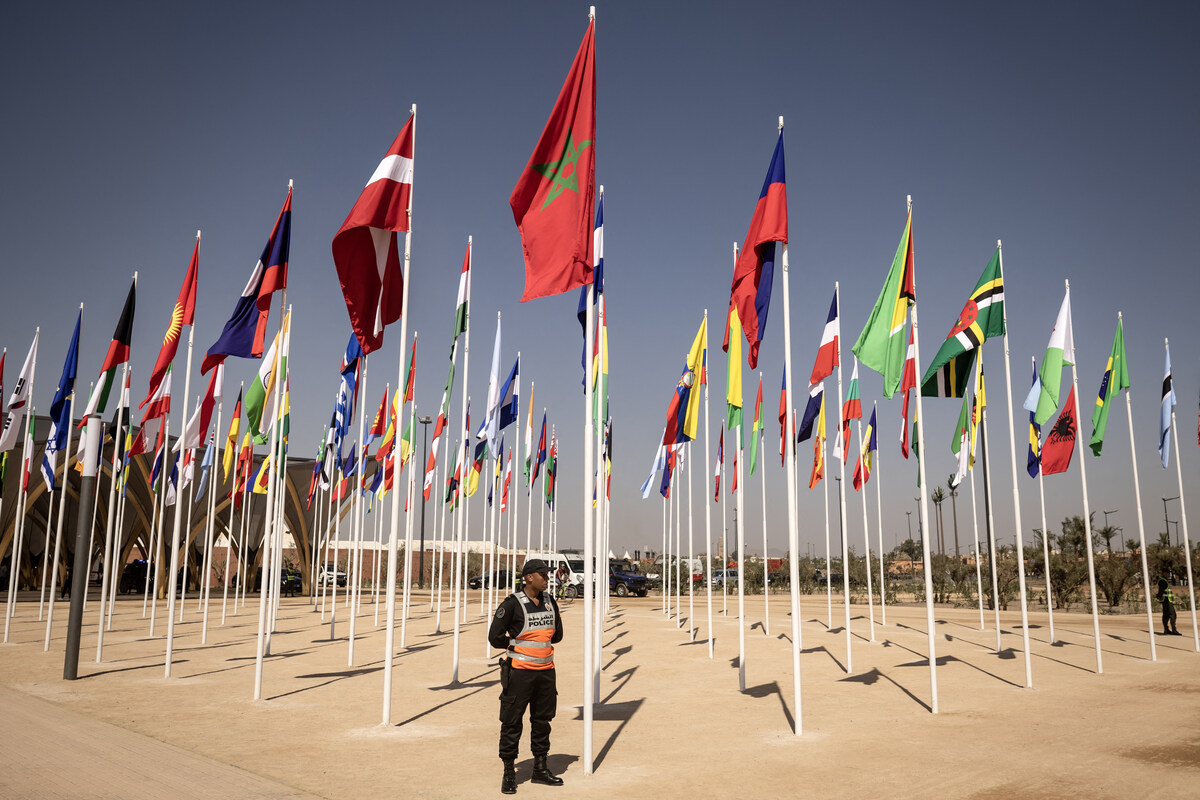The IMF and World Bank are convening in Morocco on Monday for their first annual meetings on African soil in 50 years. They are facing mounting pressure to reform their approach to better assist impoverished nations grappling with debt and climate change.
Traditionally, the International Monetary Fund and World Bank hold their annual gatherings of finance ministers and central bank governors outside their Washington headquarters every three years. Marrakesh, in southern Morocco, was slated to host the event in 2021, but it was postponed twice due to the COVID-19 pandemic. A recent powerful earthquake in the region had the potential to disrupt the event, but the government decided to proceed.
The last time the IMF and World Bank held their meetings in Africa was in 1973, when Kenya hosted the event, and some nations were still under colonial rule. Today, Africa faces a multitude of challenges, including conflicts, military coups, persistent poverty, and natural disasters.
IMF Managing Director Kristalina Georgieva emphasized the importance of a prosperous Africa for a prosperous world economy in the 21st century.
Symbolically, the IMF and World Bank are set to grant Africa a third seat on their executive boards to give the continent a stronger voice. However, the most contentious issues revolve around financial matters, as some major contributors are reluctant to increase capital, which would grant more influence to emerging powers like China and India.
Let Us Build Your Online Success!
We are the experts in creating visually stunning and functional websites. With reliable hosting and exceptional customer support, we bring your vision to life. Join hundreds of happy clients who trust us!
Get Started Now📞 Call/WhatsApp: +256 207 800 192
While the World Bank is expected to confirm plans to increase lending by $50 billion over the next decade, World Bank President Ajay Banga aims to raise capacity by $100 billion or even up to $125 billion through contributions from advanced economies, though this issue is unlikely to be resolved in Marrakesh.
The meetings may also serve as an opportunity for the global lenders to reform their quota systems, which determine funding, voting power, and maximum loan amounts based on a country’s economic performance.
Activists plan to hold a march in Marrakesh to call on the institutions based in Washington to take bold actions against climate change and debt. NGOs argue that the austerity-driven solutions offered by the IMF and World Bank are exacerbating inequality in the developing world, and they advocate for debt cancellation for the poorest nations and increased taxes on the wealthy.
Oxfam reports that 57% of the world’s poorest countries are required to cut public spending by a total of $229 billion over the next five years, which they argue is detrimental to the well-being of these nations. Oxfam International’s executive director, Amitabh Behar, criticizes the IMF for imposing spending cuts that exacerbate inequality and suffering in poorer countries.
END

